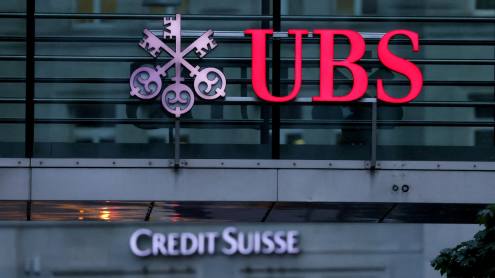Greece’s future is in the hands of the European Central Bank (ECB) and its president Mario Draghi – at least, that appears to be the prevailing mood in the country. After years of economic hardship and three bailouts, the country is yet again seeking to turn a corner. While the economy was stagnating in 2016, expectations are high for the country to record its first significant gross domestic product (GDP) growth in 10 years in 2017 – but still, forecasts are widely contingent upon external factors and agreements with creditors.
The European Commission (EC) is forecasting a 2.7% real GDP expansion in the Greek economy in 2017, based on expectations of an increase in private consumption and investment fuelling positive net exports, while the recapitalisation of the financial sector should account for a “gradual relaxation of capital controls over time”, according to the EC’s European Economic Forecast of November 2016 (see article on Greek banking sector, page 38).
Cautious optimism
"Expectations of positive growth in 2017 are reasonable," says Lucas Papademos, a former prime minister of Greece. "But it is important to keep in mind that such forecasts are based on the assumption that the policies agreed [under the third bailout programme] will be implemented effectively and in a timely manner."
He notes that further fiscal consolidation is required and a long list of reforms must be enacted to improve the efficiency of markets and institutions.
Another necessity is the successful and swift conclusion of the second review of Greece's bailout programme and the implementation of meaningful debt relief measures to ease fiscal constraints, boost confidence and reduce uncertainty about the country's economic prospects, according to Mr Papademos. He stresses, however, that debt relief is "not sufficient for achieving strong growth in Greece over the longer run. Implementation of the necessary reforms will be the principal driving force." Greece's creditors, the 'troika' of EC, the ECB and International Monetary Fund (IMF) have been at loggerheads over the review and conditions attached to it.
Greece’s Draghi hope
At the meeting of the Eurogroup finance ministers in early December, some short-term debt relief was agreed for Greece, but this was subsequently postponed. There was no clarity over either debt relief once the programme runs out in 2018 or an ongoing involvement in the programme by the IMF – all of which is being eagerly awaited by the Greek side as it “could be very important in order to see Greek bonds being included in the ECB’s quantitative easing [QE] programme”, according to an economist at one of Greece’s leading banks.
This is what it is all about: QE. While debt levels of some 177% of GDP are eye-watering, what really matters to observers is Greece’s acceptance into the ECB’s bond purchase programme.
“The cost of servicing the debt is manageable. [It is] perhaps one of the lowest [costs] in Europe but it is the absolute amount of [the] debt that is a concern to many,” says Sabina Dziurman, director for Greece and Cyprus at the European Bank for Reconstruction and Development (EBRD), which began operating in Greece in 2015. “There is a lot of talk surrounding how the market perceives Greece. If it had access to QE, that would improve confidence and put Greece back on the map as a country that is stable.”
But so far, the ECB’s Mr Draghi has denied Greece this access. Under its current QE programme, the ECB is buying €80bn of bonds until March 2017, and €60bn monthly thereafter, until the end of the year. Greece’s bonds are excluded from the purchases largely due to debt sustainability requirements, as well as other ECB risk management considerations.
And while some short-term debt relief measures were agreed upon in early December, which could lead to “a cumulative reduction of the Greek debt-to-GDP ratio of about 20 percentage points... until 2060”, according to the managing director of the European Stability Mechanism (ESM), Klaus Regling, disagreement over a Christmas bonus to be paid to Greek pensioners earning €800 a month or less, which was announced after the agreement, caused the ESM to postpone relief measures. Friction also remains over some of the terms of the programme.
IMF participation in the programme is not necessary, but some eurozone member states, including Germany, want to keep the IMF involved. However, a bone of contention between the fund and the Eurogroup is the requirement for Greece to reach a 3.5% budget surplus in 2018 and sustain it in the long run.
Views within the Eurogroup on how long Greece should have to sustain the 3.5% surplus beyond 2018 range from three to 10 years, according to its president and Dutch finance minister Jeroen Dijsselbloem, who said after the group’s meeting in December 2016 that talks with the IMF would “take us into the new year”.
The IMF deems the 3.5% target too harsh, and has repeatedly urged the Eurogroup to lower the surplus requirement to 1.5%, as otherwise even fiercer reform measures would need to be taken by Greece, imposing a tough austerity burden on the country.
Fiscal consolidation
The programmes linked to Greece’s bailouts through the 'troika' have already come with the need for significant fiscal consolidation measures, which largely translate into tax increases across goods, services, employment and business.
“People are confusing fiscal consolidation with reforms,” says Dionysios P Chionis, professor of economics at Democritus University of Thrace in the northern Greek city of Komotini. “In the seven-year period of the Greek recession we have spent valuable resources solely on fiscal consolidation. If instead of this we could also have some policies for development, we could have better results regarding growth, employment and debt sustainability. The Greek economy needs development and for that it requires QE and public investment.”
Greece is in a difficult situation. In January 2015, the elections delivered a government on an anti-austerity and anti-fiscal consolidation ticket led by the Syriza party, a coalition of the radical left, which sought to stand up to the troika. But in July 2015 the government turned back to the troika to ask for a new three-year bailout – after the population voted against the conditions of the previous bailout package in a referendum. With the need for the new €86bn bailout programme, prime minister Alexis Tsipras resigned, called new elections and was re-elected in September 2015.
“After the conflict with the lenders and the acceptance of the third programme, the government very quickly worked on reforms and within a year we achieved more privatisations than in the previous six years and we had to do all the reforms that had remained from the previous programme,” says Nikos Xydakis, Greece's former minister of culture and alternate foreign minister for European Affairs. “It is a huge programme and very painful for society and it is not absolutely certain that recovery will come automatically. We need QE from the ECB and we don’t need this monstrous surplus in the coming years – that is fiction.”
In the doldrums
While the Syriza government has changed its tune since it was elected in 2015 and is now pushing through reforms required by the programme, confidence within the country has hit rock bottom. Some 92% of Greek households have been affected by the country’s financial crisis and only 1% believe the economic situation in the country was better in 2016 than it was in 2012, according to a survey conducted by the EBRD and World Bank.
The results published in the Life in Transition report, which polled 51,000 households in 34 countries including Greece, further noted that only 6% of respondents in Greece believe the country’s political situation was better in 2016 than it was in 2012 and that overall only 24% of respondents are satisfied with their lives – the joint lowest level across all countries polled, alongside Georgia.
But public demonstrations are not as big as they were during the heights of the crisis, says the EBRD’s Ms Dziurman. “The people have suffered a great deal from the austerity measures but it would seem that they are resigned to the need for change or perhaps are just exhausted,” she says. “People are accepting the reforms in a way that nobody ever expected they would.”
Mr Xydakis, who in the past was editor-in-chief at the country’s largest newspaper Kathimerini, says that Syriza’s move to accept the reforms has been very painful and has come at a “high political cost”.
“Today’s government strategy is easy to summarise: to finish the second review and to take QE to send a good message to the economy and the market and to begin to stabilise the whole system,” he says, adding that “all forces” are being put into completing the review (which was also the reason why Mr Tsipras decided to change the line-up of his cabinet in early November).
“We have touched the bottom,” he says. “Greece is not a huge economy, our GDP now is €175bn. Even a €1bn improvement could make a big difference for us. Greece’s fundamentals are not worse than those of many other countries but it is haunted by the past few years. We need to repair our reputation and bring some good news by finishing the review and getting QE.”
And with Greece’s bailout programme nearing its end, the Greek government is being put under increasing pressure to show international markets that it is able to sustain the country without extraordinary assistance. Expectations are for Greece to issue a sovereign bond in 2017 to underline that it has returned to normal and can access the markets. But experts say, first, Greek bonds need to be included in QE. So, all eyes are on Mr Draghi.












